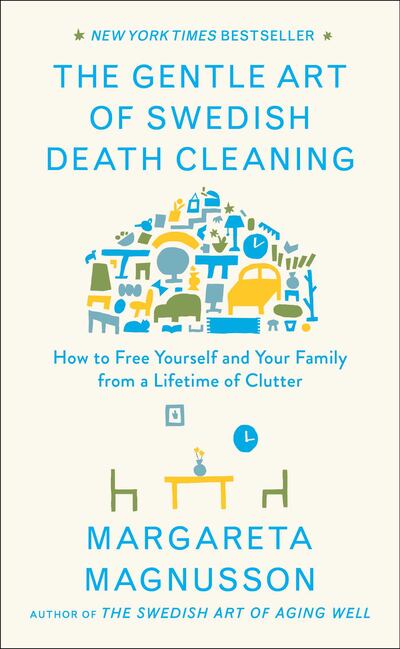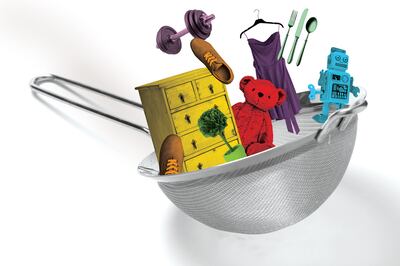When Priya Rao recently lost her mother to cancer, her sister and she had to spend a lot of time clearing out years of accumulated possessions, from crockery and clothes, to shoes, books and photos. It was then that Rao decided she would start decluttering her own house, as she did not want her children to go through the physically and emotionally draining experience.
Rao has unknowingly tapped into the Swedish practice of dostadning (death cleaning), a thoughtful decluttering method that ensures your earthly possessions will be of value to loved ones after your death. The philosophy is also about facing your departure from the world in a mature fashion, as well as related to the thought that real happiness does not come from possessions, but from relationships and experiences.
professional organiser
While the Vikings and Egyptians chose to be buried with their belongings – from their swords to their jewellery (perhaps to avoid fights between their loved ones) – most of us have too many materialistic possessions, getting rid of or allocating which can prove overwhelming and onerous for our loved ones.
In The Gentle Art of Swedish Death Cleaning: How to Free Yourself and Your Family from a Lifetime of Clutter (2018), author Margareta Magnusson says unworn clothes and unwanted presents are some possessions you can easily get rid of, by gifting, donating or recycling.

What you might want to keep are items with sentimental value such as letters or photo albums. However, Magnusson suggests you shred and destroy anything that could be hurtful or embarrassing if found after your death. Alternately, you could put your most personal possessions in a disposable box adorned with a sticker that reads: “Please throw this away without opening it.”
Magnusson’s book has its origins in the traumatic deaths of her husband and mother. “Don't collect things you don't want,” she writes. “Someone has to take care of it one day. Death cleaning is not about dusting or mopping up; it is about a permanent form of organisation that makes your life run more smoothly. My motto is: if you don’t love it, lose it. If you don’t use it, lose it.”
While Magnusson’s book is aimed at people over 50, Jody Adams, a professional organiser who lives in Pittsburgh, says “the decluttering framework applies at nearly any age, not just when we’re older. It reminds us that now is the time to clear out the things that no longer fit into our lives.
therapist and counsellor
"Doing so gives new use to items that would otherwise sit idle, gives voice to the stories behind the objects, and enables our loved ones to understand and value what we have when we are no longer here to use it. Ultimately, it invites us to be intentional, so we live our legacy, not just leave it behind.”
Sifting through years of accumulated possessions involves a lot of decision-making, so involve your close ones to understand better what they might value. Decluttering also is not an overnight but rather an ongoing process that takes time and effort. The upside is that gifting books and other treasured items or sending clothes to charity can be an enriching experience.

In current times, we also accumulate a lot of digital clutter, from emails to online banking and social media accounts. Putting these in order is also a good idea, writes Magnusson, who suggests keeping a book of passwords so family members can access your accounts.
Health-wise, decluttering is associated with less stress and more productivity. “It is such an important concept for a psychotherapist to work with. The process of emptying drawers and cupboard spaces [can help] peel off layers of mental dust and debris,” says therapist and counsellor Deenaz Damania. “Decluttering one's physical environment is a great way to kickstart the process of mental clarity by ridding the mind of unwanted, unhappy thoughts and the heart of sad emotions.”
Crucially, be organised but not obsessive. Decluttering is an ongoing process that’s never truly finished because, as Magnusson puts it: “You don’t know when you are going to die, so death cleaning goes on and on.”

